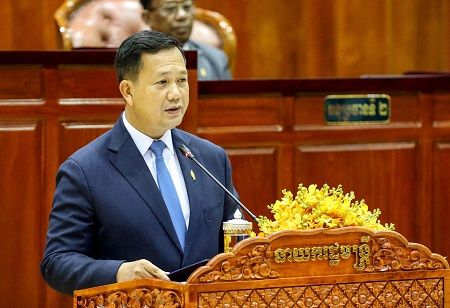- Cambodia Marks 50 Years Since Khmer Rouge Genocide: On April 17, 2025, Cambodia reflects on the tragic period (1975-1979) that caused immense suffering, especially disrupting education for a generation.
- Genocide Education Integral to National Curriculum: Since 2009, over 600,000 students weekly learn about Khmer Rouge history through formal lessons, with support from the Ministry of Education and DC-Cam.
- Prime Minister Calls for Broader Genocide Awareness: International Conference, PM Hun Manet urged integration of Khmer Rouge history across subjects and the use of arts and media to preserve memory and promote peace.
April 17, 2025, will see Cambodia celebrate the 50th year of the Khmer Rouge genocide, a dark moment that brought unspeakable misery to more than 7 million Cambodians through forced labor, hunger, and loss of education. Children were removed from school during the Khmer Rouge rule between 1975 and 1979 and used as laborers in rice fields and construction, creating a generation of lost students. Today, five decades on, Cambodia remains devoted to remembering and healing by teaching over 600,000 young people every week about this horrific history in school lessons.
Since 2009, the Ministry of Education, Youth and Sport has included study of the Khmer Rouge past in the national curriculum, educating an estimated 5,000 teachers in a range of subjects including history, geography, Khmer literature, and morality of citizens. Backed by the Documentation Center of Cambodia (DC-Cam), this program makes sure that hundreds of thousands of students each year become better informed about the events that defined their country.
Prime Minister Hun Manet inaugurated the First International Conference on 'The Future of Cambodia Without Genocide' at the headquarters of the Royal Cambodian Armed Forces, a location previously occupied by the Extraordinary Chambers in the Courts of Cambodia to hear genocide cases. During his keynote address, the Prime Minister called for all institutions, from military to civilian, to take a proactive approach to genocide education and insisted on incorporating Khmer Rouge history into various subjects, not only history lessons. He also stressed the potential of arts, digital media, and other creative forms to recount such painful histories and to inspire future generations.
The government's commitment is also evident in the recent release of a Grade 6 history textbook, "Khmer and the Journey to Prosperity," which contains a chapter on Khmer Rouge history to make the realities of this era understandable to younger students. The ministry of education is also enhancing textbooks in several major subjects to equip students with vital knowledge and values.
Efforts reach beyond the schools, with the history of Democratic Kampuchea taught in educational workshops for military officers aimed at improving peacekeeping and strategic decision-making. A total of more than 300,000 students in Grades 9 and 12 now learn this history, with another approximately 300,000 Grade 6 students to be instructed in the coming years, based on ministry statistics.
As Cambodia's student population expands, such an emphasis on teaching genocide serves not just to ensure memory but to maintain social stability and avert the repetition of such horrors. By educating future generations, Cambodia reinforces its dedication to peace and guarantees that the lessons of the past are remembered.

